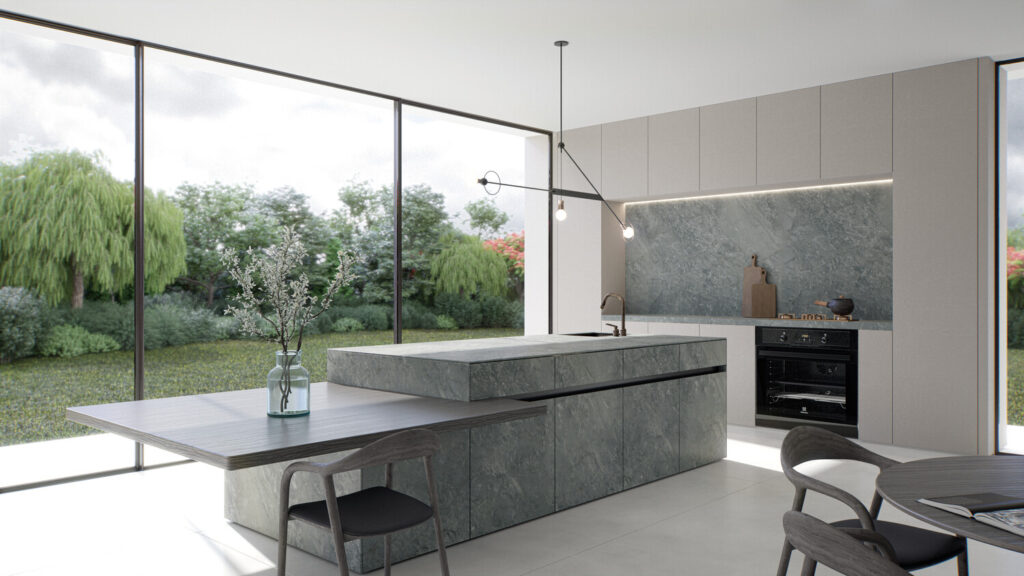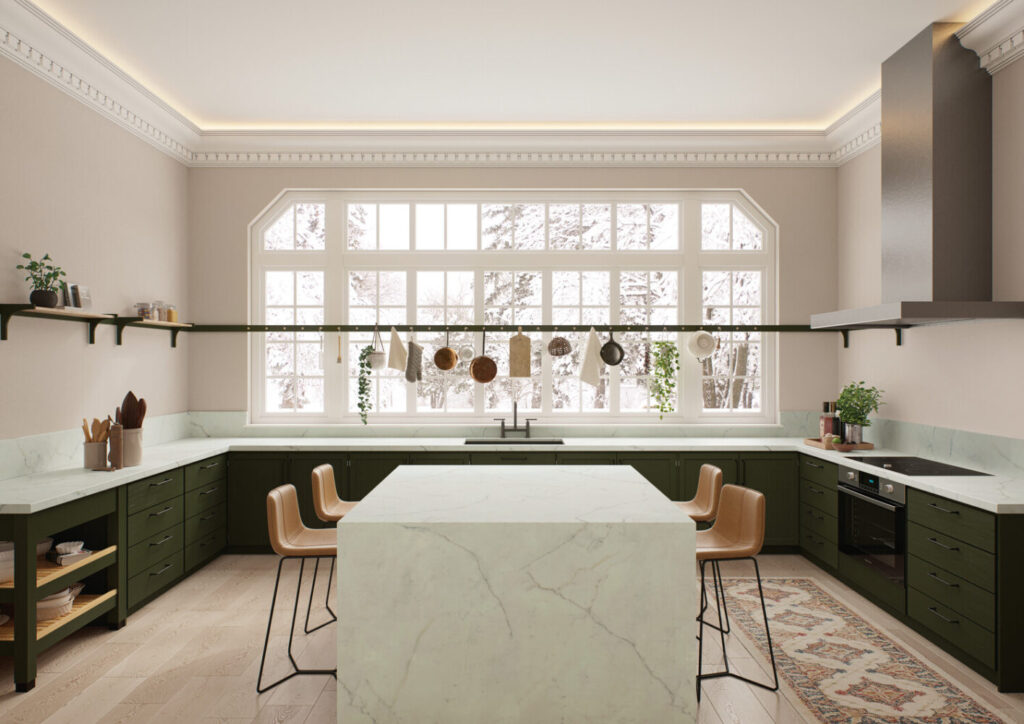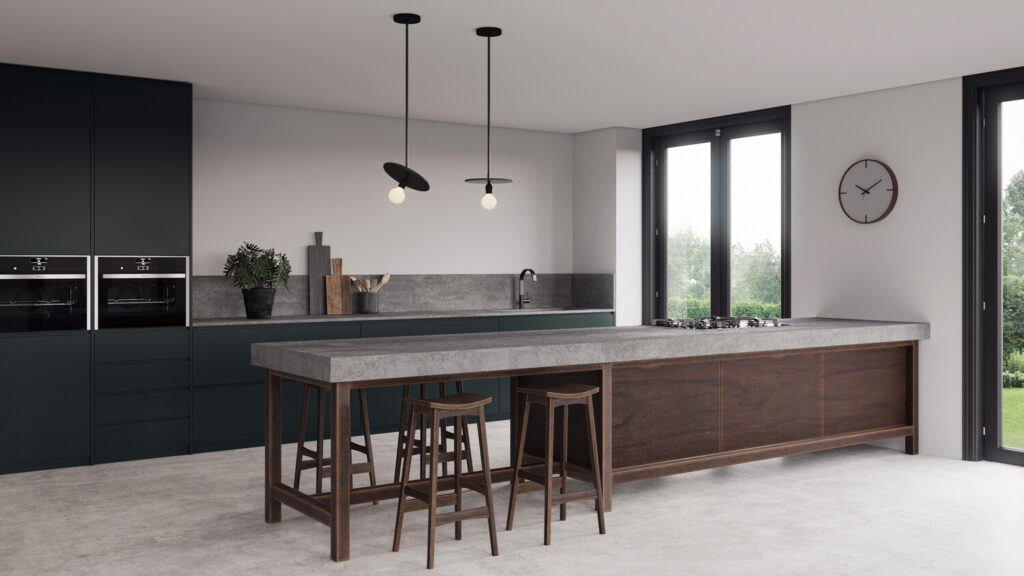What are Neolith Countertops and What are They Made of?
5 min read
Quartz, granite, and porcelain are all well-known countertop materials that homeowners and business owners have come to know and love.
However, there is another option: neolith.
But, what is neolith? In short, it’s a surface made from sintered stone and is completely natural.
But, can this new countertop material meet expectations like other common surfaces?
Today’s article will explore what neolith countertops are and how they’re made. Plus, today’s article will also investigate a potential alternative to help home and business owners make the best informed decision for any space.
Continue reading to learn the ins and outs of neolith countertops.

Neolith countertops are a type of countertop made from sintered stone and are 100% natural.
Manufacturers make sintered stone by fusing together natural minerals and materials with pressure and high heat.
Neolith countertops are made from a combination of minerals, clays, and feldspar. Each countertop is different, as there are no specific sets of measurements — the exact composition varies between product and manufacturer.
Neolith undergoes a process that uses raw materials to create a sintered stone.
To start the countertop crafting process, raw materials are sourced from quarries and mines across the globe. The materials are compressed into tiny pieces and eventually turned into a liquid mix, which is then poured into a mold.
The mixture goes through a process called compaction, where pressure is applied to draw out any excess water. In the final stages, the material will undergo sintering, where heat over 1200 degrees Fahrenheit is applied over the course of many hours, which leads to fusion and solidification.
The end result is a dense and durable stone that has been used for countertops, flooring and wall cladding.

After learning what a neolith counter is, homeowners should review the advantages and disadvantages of installing these types of countertops.
Sustainable: Since neolith is made up of natural materials, it is recyclable and can be reused in its lifespan
While neolith countertops have some advantages, there are a number of disadvantages that home and business owners should consider prior to making a commitment to this surface.
Here are some potential drawbacks to neolith:
Installation: Neolith should always be installed by professionals because it is heavier and denser than many other countertop materials.
After learning the answer to the question, “What is neolith?”, it becomes a lot easier to compare the surface with other (and sometimes better) alternatives.
Porcelain is a great alternative to neolith countertops because the material is incredibly durable, and can resist scratches and heat. In fact, it is much stronger than granite, but not quite as hard as quartz.
Avoid setting up an opportunity for bacteria and mold to grow in the home or office, with porcelain’s non-porous surface that is easy to clean and maintain. Plus, porcelain can also hold up against long-term sun exposure.
Also, another benefit of porcelain is the price. Whereas the average cost of neolith countertops can range from $60 to $105 per square foot, porcelain countertops range from $55 to $100 per square foot.
Overall, porcelain is a great option due to its appearance, low maintenance requirements, and durability.
Homeowners and business owners can check out Caesarstone’s porcelain countertop collection and see why porcelain countertops are a worthwhile investment in any home or office.

In conclusion, homeowners who have been wondering, “What is a neolith countertop?”, now know that a neolith counter is a high-end surface made from natural materials.
Based on the material makeup and benefits, neolith countertops can be a worthwhile investment; however, Caesarstone’s porcelain countertops are far superior because of their durability and beautiful designs.
Not convinced yet? Feel free to check out Caesarstone’s Virtual Kitchen Visualizer to see how a porcelain countertop would fit into any home or office.
And, when it is time to make a purchase, homeowners and business owners can visit the Where to Buy page to find nearby stores and showrooms.
{{ subtitle }}
{{ i.desc }}
{{ subtitle }}
{{ subtitle }}
